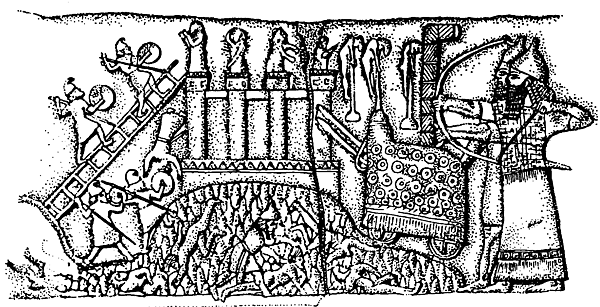Well its been some time since the last post. I have started a new game, and this initially took up much of my free time. However, I've gotten the story arc figured out and I can now go back the posting.
Part III
Social
Institutions
There are perhaps 50 clans in Pecháno.
No one has ever done a census. The Beneshchán and Rekhmél lineages are the biggest
and most powerful. Some are remote mountain clans, almost equivalent to “tribes”.
A few are occupation-based: bakers, wine-makers, carters, smiths, butchers,
arms and armour-makers, and the like. A couple are religious in nature:
secretive and devoted to their deities. Pecháni don’t introduce their clan
names with “hi”, as the Tsolyáni do. They put the personal name first, followed
by the clan name. The Pecháni, like the Salarvyáni, stress hereditary family
position, and noble titles, which are accompanied by both political power and
wealth. An individual’s position depends upon his family and its standing in
the ranked tiers of the society. Within Pecháni society the warrior lineages
are considered the most prestigious. Slavery is present in Pecháno however,
like the Salarvyáni, slaves are owned by individuals and not by the clan as a
whole. Far more common are indentured servants and serfs who are still
accountable under the law!
 |
Pecháni Warriors sacking a Salarvyáni fortress.
Column Carving: Hall of Skulls, Mechanéno.
|
Part IV
Law,
Police, Punishments, and the Arenas
The legal system of Pecháno is
founded upon the principles laid down by the Priest Kings of Éngsvan hla Gánga.
Theoretically, this should provide for a monolithic, nationwide hierarchy,
which stretches, from the village headman all the way up to the highest courts
in the land. There should be no local laws or ordinances: what is legal in Mechanéno
should be legal in Teshkóa or Ogréjja. Reality is somewhat different, however. Like
Salarvyá, Pecháno is a feudal monarchy, the Beneshchán, and Rekhmél are the
absolute masters of their lands, and minor deviations of the state laws are not
uncommon. The Pecháni legal system falls somewhere in between the centralised Tsolyáni
one, and the decentralised Salarvyáni system. The authority of Mechanéno does manage
to keep things consistent for the most part.
There are two types of courts in Pecháno:
Imperial, or Royal, and Civil. There are no ecclesiastical courts in Pecháno.
Any disputes amongst the temples, or with the temples are settled in Civil Court.
A Royal Court tries cases in which the state itself is the aggrieved
party: treason, spying, speculation of state monies or property, dishonesty in
a royal post, cowardice or disobedience by soldiers and a variety of other
similar offences fall under its purview.
Part IV Continued next post...
No comments:
Post a Comment